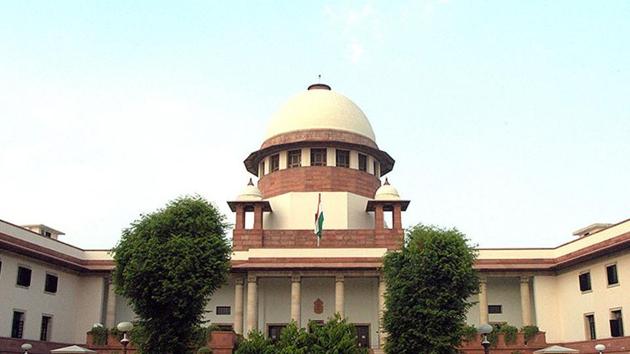SC directs Kerala government to frame law on Sabarimala
A three-judge bench led by justice NV Ramana said the Ayappa temple in Sabarimala cannot be administered by a common law proposed to govern 3,000 temples.
The Supreme Court on Wednesday directed the Kerala government to frame a law to manage the Sabarimala temple by the third week of January 2020, and expressed displeasure over the state not coming up with such a law despite stating so in August.

A three-judge bench led by justice NV Ramana said the Ayappa temple in Sabarimala cannot be administered by a common law proposed to govern 3,000 temples.
The bench, also comprising justices Subhash Reddy and BR Gavai, pointed out that the proposed law had reserved one-third of the posts for women in the temple advisory committee and wondered what the state would do if the larger bench, which will look into the issues suggested by the five-judge Constitution Bench – on the question of age restrictions on entry of women into the hill shrine – was to take a different view from what was decided in 2018.
A five-judge bench led by then CJI Dipak Misra in September 2018 lifted a decades-old restriction on girls and women aged between 10 and 50 years entering the Sabarimala temple, triggering protests by traditionalists in Kerala .
Last week, the SC, by a 3:2 majority, referred the issue to a seven-judge bench after observing that the controversy was related to gender discrimination and overlapped with other cases pending before the top court.
It suggested clubbing those matters – restrictions on women from entering mosques, female genital mutilation (FGM) and prohibition on Parsi women from entering fire temples – with the Sabarimala case for a comprehensive judgment that would answer questions arising out of such petitions.
In response to the court’s question, senior advocate Jaideep Gupta, appearing for the Kerala government, said in case the 2018 ruling is set aside, the proposed members would then be women above 50 years. Gupta said the 2018 judgment was the topic of discussion and debate outside the court as well.
The bench asked the State to also consider Justice Chandrasekharan Menon Commission’s report while framing the law. Constituted in the aftermath of the January 1999 stampede, the Commission had mooted an independent administrative body for the hill shrine.
“Two-three months not sufficient for you?” Justice Ramana asked Gupta when the bench was informed that the law was still under discussion. The state submitted an amendment bill — The Travancore-Cochin Hindu Religious Institutions (Amendment) Bill, 2019 — proposing a common law for the administration of Sabarimala and other temples currently falling under the Travancore Devasom Board.
“You have proposed one administration for 3,000 temples...It’s unmanageable”, Justice Ramana told the state’s counsel. Like the Tirpuati, Guruvayur and Sidhi Vinayak temples, Sabarimala should also have a separate administrative law as the hill shrine is visited by hundreds of thousands of devotees, the judge said.
The bench was hearing a plea by Revathi Naal P Ramavarma Raja of the Pandalam royal family seeking a separate committee for the temple’s administration. The petitioner approached the top court in 2011 after the Kerala high court did not consider his prayer.






